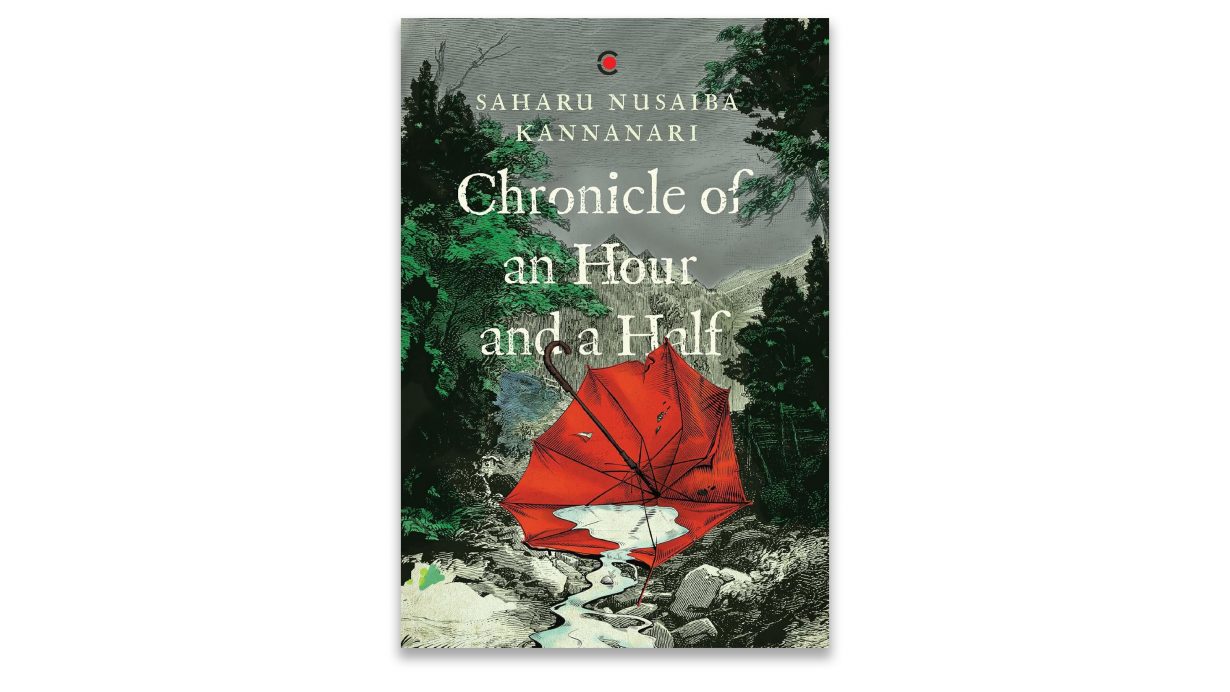Chronicle of an Hour and a Half by Saharu Nusaiba Kannanari tells a provincial story in the daily dystopia of Hindutva-led India

Life in provincial villages can be far more sinister than that afforded by the relative anonymity of city dwelling. People know everything about everyone; old hurts and jealousies simmer just below civility; and there is nowhere to run. Saharu Nusaiba Kannanari’s debut novel is set in Vaiga, one such too-small village in Kerala.
A rumour of a matriarch being slapped that offends the honour of her sons mingles with news of an affair between Reyhana, whose much-older husband works in the distant Gulf desert, and Burhan, a strapping young man. The rumour starts tentatively, and then spreads like wildfire over WhatsApp. Rain has been falling for six days: the weather is a premonition, making the day ‘as dark as any dark night’.
A host of characters – a matriarch with five strong but useless sons and an equally useless, impotent husband; Reyhana, the voluptuous mother of two; the Imam forced into indignity because he is not paid a salary and has to have his meals at different houses by turn; the non-believing Arabic teacher at the mosque, and others – are going about their ordinary lives on a very wet holy Friday afternoon. The rumour builds over the following hour and a half, propelled by a man whose wife had left him for someone else a few years prior, and seems to be seeking revenge against his wife’s lover for the humiliation he still faces in the village.
There is no real surprise, at least for those of us living in the daily dystopia of Hindutva-led India, about the inevitable violence that is to come. A throwaway remark by one of the villagers, of having seen Reyhana’s father-in-law apparently slap Burhan’s mother, merges with news of the two lovers being together right then, in broad daylight. The two-headed rumour, aided by social media, sparks a self-righteous anger among the village men that is really hypocrisy by another name, for many among them would have gladly slept with Reyhana if they had had a chance; most are just jealous of Burhan. The perceived dishonour to the matriarch and the audacity of the lonely wife become something of a personal insult to each man in the mob. The process of how this evolves is what Kannanari draws out in increasingly breathless, frightening detail.
His cyclical sentences, with frequent repetitions of a scene, a setting or a dialogue (for instance, ‘Ippa was coughing. Ippa was coughing and not talking’) is a common device used in some of India’s regional-language literature to emphasise a point, but is perhaps rarer in English. The hyperbole that this creates mimics the rhythm of oral storytelling and helps whip up a sense of frenzy. You know where this is headed; there is dread, but at the same time there is an excitement, a curiosity about the way people organise and pass on (mis)information via videos, constant updates and photos, all forwarded over WhatsApp. It’s as though we too are part of the mob, unable to look away, unwittingly participating in herd violence.
Under the last ten years of a far-rightwing government there have been many horrific incidents in India triggered by rumours. While the news media might present a culminating event, it is less focused on the path fake news takes before it becomes the cannibalising monster claiming its next (always minority) victim. There’s a term for it in post-truth India – WhatsApp University – that describes the misinformation spread via the app, mocking those who rely on fake news as the primary source for their majoritarian arguments.
In this political climate and during a crucial election year in India, Chronicle… makes for a sobering read. Even more so following the 2024 Global Risk Report, released by the World Economic Forum, in which the country and its nearly one billion voters were ranked at the highest in a list of those nations facing disinformation and misinformation leading up to general elections. Kannanari’s book doesn’t explicitly address the reasons why minorities are prosecuted or murdered in the country today, sticking instead to the ostensibly safer realm of the personal. The chronicle is nevertheless bone-chilling.
Chronicle of an Hour and a Half by Saharu Nusaiba Kannanari. Context, Rs 599 (hardcover)